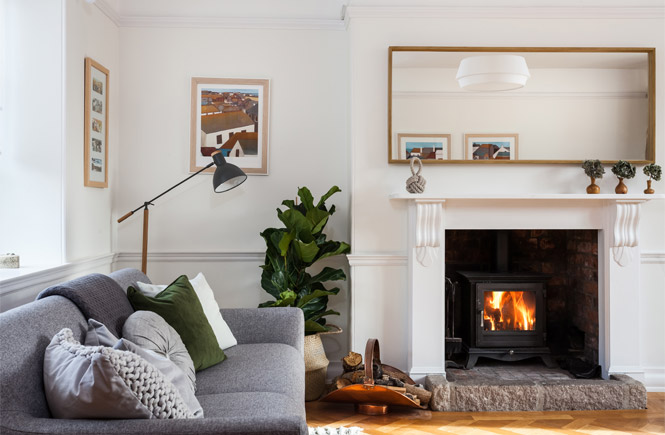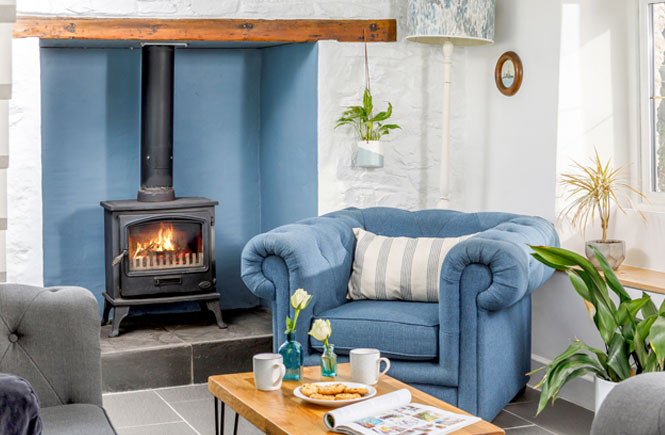
Fire safety guidelines are in place across the UK to help keep properties and guests safe while holiday letting, which is why it’s so important to know and understand any changes.
The government has issued new regulations which will apply from 1st October 2023. We have summarised these below:
Full length, written assessments, covering all aspects of fire risk, will become a legal requirement for all properties.
Additionally, the government has issued new guidance for ‘small paying guest accommodation’. This is defined as:
‘A single premises of ground floor, or ground and first floor, providing sleeping accommodation for a maximum of 10 persons, with no more than four bedrooms on the first floor…’
OR
‘Individual flats (whether within a purpose-built block of flats or a house that has been converted into flats), other than unusually large flats.’
You can see the full guidance here.
For larger or more complex properties, the document Fire Safety Risk Assessment: Sleeping Accommodation still applies, and it is likely to be reviewed in 2024.
What does the guidance say?
Below are the main points within the new guidance:
Fire Risk Assessment
A comprehensive, written fire risk assessment covering all aspects of fire risk within the property, will become a legal requirement for all properties. A copy of the full fire risk assessment must be on display in your property, ideally in your welcome folder.
We strongly recommend that you consult with a fire safety professional who can provide an up-to-date assessment of your property that aligns with the legislation. We can provide details of recommended Fire Risk Assessors in your area.
For larger or more complex properties it is extremely unlikely the owner will have the experience to thoroughly and sufficiently evaluate the level of risk.
Emergency lighting
Emergency escape lighting is required in all bedrooms and along the escape route; such as plug-in torches. Borrowed light from an external source, such as a streetlight can be taken into account. Larger properties may need full escape lighting, as torches may not be sufficient. A fire risk assessor can offer advice on suitable options when undertaking a risk assessment.
Escape routes and fire doors
All protected escape routes must have doors with a 30-minute fire protection capability or an adaption that offers the same level of protection.
Smoke detectors
Linked hard-wired smoke detectors will be required in all bedrooms and living rooms as well as protected escape routes, such as hallways, corridors, staircases, sitting rooms and dining rooms leading to the main fire exit. Larger properties or those with complex layouts may need more sophisticated detection systems. We recommend liaising with your professional fire assessor for advice.
Hot water and heating
All hot water and heating systems must be inspected annually, including systems powered by renewable energy e.g. air/ground source heat pumps.
Locks
Thumb turn locks are now strongly recommended on all exit doors. There would be very few instances where it would be deemed unnecessary to fit these, and they can usually be retro-fitted to most doors easily.
Electrical testing
The EICR (Electrical Installation Condition Report) is required every five years, and this now also applies to smaller properties such as glamping pods.
Chimneys
Chimneys should be swept annually.
Fire checks
Fire safety equipment and exit routes must be checked at each changeover and the results should be recorded.
Candles
Candles should be prohibited, and a clear policy is required for your guests.

What to do next
We would advise your Fire Risk Assessment is undertaken by a professional, accredited Fire Safety Risk Assessor, rather than compiling the risk assessment yourself, as the new guidelines are more complex and they will have a thorough understanding of the changes and requirements for your property. A professional FRA will ensure you do not put yourself or any guests at risk.
If you have any questions, please get in touch and we can recommend a local Fire Risk Assessor.
Tags: Owner update